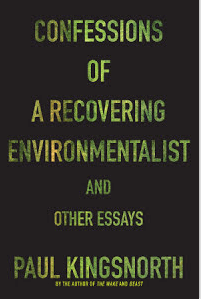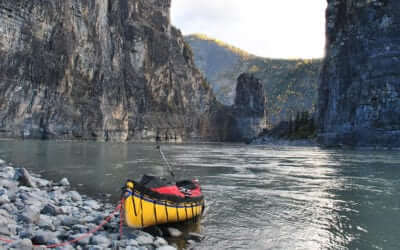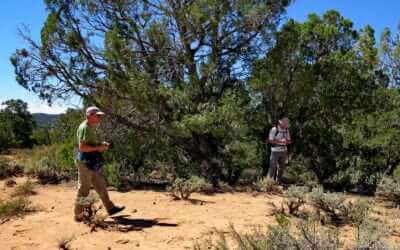Book Review
John Shultis, Book Review Editor
Wilderness Digest
August 2018 | Volume 24, Number 2
CONFESSIONS OF A RECOVERING ENVIRONMENTALIST AND OTHER ESSAYS
by Paul Kingsnorth. 2017. Greywolf Press. 284 pp. $16.00 (pb).

When asking graduate students which environmental public intellectuals I should read, Paul Kingsnorth’s name is frequently mentioned (along with George Monbiot, Rebecca Solnit, and Terry Tempest Williams). Kingsnorth is a longtime activist, Man Booker prize–nominated author, and former deputy editor of the Ecologist. Confessions is an enjoyable, easy-to-digest collection of his work published over the last 10 years.
As the title would suggest, Confessions traces a gradual disillusionment with the environmental movement. The hard truths that Kingsnorth tells of include a single-minded obsession with climate change, an environmental movement focused on admittedly important humanist and social justice concerns, and the neo-environmentalists such as Peter Kareiva (formerly chief scientist of The Nature Conservancy), Emma Marris, and the folks at the Breakthrough Institute. The green movement, Kingsnorth suggests, has become utilitarian and self-congratulatory in their embrace of technology, sustainable development, and ethical consumption:
We are not environmentalists now because we have an emotional reaction to the wild world…. We are environmentalists now in order to promote something called “sustainability.” What does this curious plastic word mean? It does not mean defending the non-human world from the ever-expanding empire of Homo sapiens, although some of its adherents like to pretend it does, even to themselves. It means sustaining human civilisation at the comfort level that the world’s rich people – us – feel is their right, without destroying the “natural capital” or the “resource base” that is needed to do so. (p. 68)
Much like Edward Abbey and Gary Snyder, Kingsnorth targets growth-for-the-sake-of-growth as the more important cause for concern. With an unfailing optimism that human ingenuity and resourcefulness will find ways to only continue human dominance and progress, many environmentalists now seem little different from big governments and large corporations:
This approach has left environmentalism in a position where its advocates now find themselves unable to do anything but argue about which machines they would prefer to use to power an ever-growing industrial economy. (p. 47)
One target of disappointment for Kingsnorth is those like Stewart Brand, who in the face of the supposed Anthropocene, suggest, “We are as gods, and HAVE to get good at it” (Whole Earth Discipline, 2010, p. 1). Kingsnorth worries that, as captains of the planet, we treat and deplete the resources of the Earth such that we must then turn to the heavens. But, he suggests, that a “Mars-based future, like the future in which we rebuild passenger pigeons in laboratories, breed babies in machines and download our consciousness into silicon chips, is an exercise in space-age Romanticism” (p. 39).
Paul Kingsnorth follows in the tradition of Emerson and Thoreau, calling for a simplicity of wants, a humility and forbearance, and an embrace of the joys and wonders of nature. He suggests that “living without wild nature is like living without one of our senses or one of our limbs” (p. 57). Confessions is a well-written, well-considered, and compelling collection. Kingsnorth’s is a voice well worth giving attention to.
Reviewed by BILL BORRIE, professor, Parks, Tourism and Recreation Management, University of Montana; email: bill.borrie@umontana.edu
Read Next
WILD11: Why China, and Why Now
The 11th World Wilderness Congress (WWC), or WILD11, will convene in China in late 2019. Our China partners have promised exact venue and date for 2019 in September of this year.
Paradigms Lost: A Rumination on the Pursuit of Wildness
Recently, two reissued books from the early 1900s caught my attention. The books are That Summer on the Nahanni 1928: The Journals of Fenley Hunter and Sleeping Island: A Journey to the Edge of the Barrens, by P. G. Downes.
Understanding and Mitigating Wilderness Therapy Impacts: The Grand Staircase-Escalante National Monument Case Study
Studies demonstrate that wilderness therapy programs can be beneficial for participants; however, little research has explored the ecological impacts of these programs.



